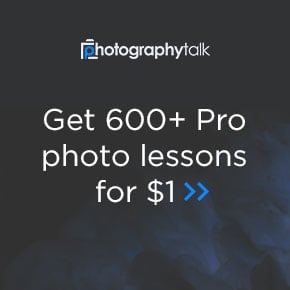Lens for Power Lines
-
 Topic Author
Topic Author
- Sir_Walt_II
- Newbie
- Followers: 0
-
Points:
155
Post #557956
I've been considering buying a film SLR because why not. Leaning toward a Canon A-1 but I'm not sure about the lens yet. I haven't had a real camera in years so I need your advise.
I recently started a lineman apprenticeship (learning to work on high voltage power lines) and because I'm a nerd I actually want to photograph power lines that I see both at work and in my free time. There are so many was to build distribution lines in a city and I want to photograph some of the poles that are really congested with multiple circuits, equipment, etc. I would also like to take some photos of my crew working on the lines if I get the chance.
What focal length do you recommend? I like to keep things simple so I'd prefer a prime lens, although if you disagree feel free to talk me out of it. Most of what I want to shoot will be 30 to 50 feet in the air, and the equipment can be anywhere from the size of a microwave to a bathtub, but with smaller connections that I would like to be able to see. (That may have sounded ridiculous but it gives a little perspective on what I'm looking to shoot.) I think a 50mm would work. But what are your thoughts?
-

- garyrhook
- Oh Wise One
-
- Nikon D850, Nikon D750, Panasonic G7K
- Followers: 912
- Posts: 11103
-
Points:
67681
Post #558058
As for taking a camera with you to work, have you considered whether that will be allowed or not? Have you asked? You might be a millenial (guessing here) but it turns out that sometimes you don't get to make your own rules. You'll want to talk to your new boss before you try anything.
Are you getting paid to take photos? Or work on power lines? Because if the latter, your crew mates aren't going to want to stand around while you muck about with a camera. At least, just guessing.
Focal length? For what? There's no single answer to that question, and you've provided bloody little detail about the specifics.
Finally: film? Do you have any experience with film? Or with photography? I'm guessing no since you ask some pretty basic questions.
A digital camera is a "real camera", and I would suggest picking up a used entry-level DSLR to learn the basics. A good 50mm lens is less than $200. You don't need top-end stuff to learn, and avoiding the pain of film developing and printing will also save you lots of money.
Short answer: you might want to rethink your plan after considering actual constraints.
-
 Topic Author
Topic Author
- Sir_Walt_II
- Newbie
- Followers: 0
-
Points:
155
Post #558115
By "real" camera I meant "not my iphone." I did not mean that digital cameras aren't "real." Also, calling myself a nerd had nothing to do with photography and everything to do with me thinking about work all the time outside of work and wanting to start a work-related hobby ...
Here's why I want to do film:
Years ago in college I bought an entry level DSLR. I had a friend who took a few photography classes and he explained the basics to me. The Really Really basic stuff. I snapped thousands of photos with it and stored them on my computer and can remember only a few that I liked and haven't looked back at the photos since.
As you can see by my basic question about lenses I didn't learn much from toting that camera around because I didn't need to learn anything. Point, Shoot, Upload, Forget. Right now my brother has it and I don't care to buy another one because I could get it back from him.
Money isn't a big issue with the camera/lens I'm looking at costing around $150. And it would take well over 600 film photos to cost what a nice DSLR would cost after I have every photo developed, printed, scanned, etc. And a nice camera isn't even the point. I have no intention of selling photos. I actually just want to see the connections on transformer banks, capacitor banks, switches, and other things that I'm learning about in this apprenticeship. I think having some photos of really complicated wiring would be cool and it would help me learn, even if it is totally unnecessary. And doing it on film will be more challenging, more fun, and I'll learn a lot more about photography than I did before. Getting film developed won't be an issue either because I'm not going out and taking hundreds of photos a day. I just want to photograph the more congested lines and busier poles as I see them. I doubt I use more than a roll of film every month. And I recognize that 99% of my photos are gonna suck at first but that doesn't matter to me. So I say film, why not?
As far as work goes:
Occasionally, we have down time. Last spring I got called to a wind storm that knocked thousands of people out of power in Olympia, WA. My crew got there and there was a huge tree that had fallen over a transmission line, knocking down one phase and being held up by the other two. We couldn't do anything until a tree trimming crew got the tree off of the line. I asked my then new boss if I could take some pictures while we waited and he said, "I don't five a s#!t." (Rough people in this industry.) So I took some photos with my iphone and as you could imagine, with a little distance you can barely tell that there's a power line under the tree. That's why I want a "real" camera. Taking photos at work isn't going to be a daily thing, hence my words, "if I get the chance." You don't need to lecture me on my work ethic, or my generation for that matter. I'll worry about that myself, thanks.
So there you have it. And we are wildly off topic.
I suppose I could rephrase my question to be more specific:
Would a 50mm lens be enough to pick out detail in on a pole roughly 40 feet off the ground? Things like wire color and connections roughly the size of a golf ball? Or do I really want more zoom to be able to pick out what is up there?
Thanks, and if you made it this far, sorry for the long-winded reply.
-

- KCook
- Photo Elder
-
- Canon EOS 50D and Olympus E-P5
- Followers: 1325
- Posts: 5410
-
Points:
32913
Post #558122
Lens selection is tricky. If shooting while high up the pole I would go for a 28mm. From the ground a zoom makes more sense.
That is, if any of this makes sense! As Gary warned, company policies may frown on workers playing at photography.
Kelly
-

- garyrhook
- Oh Wise One
-
- Nikon D850, Nikon D750, Panasonic G7K
- Followers: 912
- Posts: 11103
-
Points:
67681
Post #558279
I very much appreciate your comments. Not longwinded at all. They are, IMO, extremely helpful. And anybody that knows anything understands that you are in a very challenging (physically, mentally, rick) line of work. I and my electronics salute you, sir.
Now then: what Kelly said, yes. As for cost, the problem with film is that nowadays you develop and print yourself, or you send away to a lab. And the choices are not what they used to be. But you can get a Nikon F1 for < $200. I'm not sure which lenses it takes, but the older Nikon equipment is relatively inexpensive.
You touched upon the biggest problem with digital: It doesn't count until it's printed. But IMNSHO presuming to only snap a photo and you're done is a narrow view of photography. Whether you use the darkroom or Lightroom/Photoshop, post-processing is where your vision is realized. Then you create the print. Your early experience is unfortunate, (far too) typical, and illustrative. If it takes a film camera to get you where you want to be, then go for it.
To your re-phrased question: it's not about the focal length, it's about getting the shot that you want. If you have a 50mm lens and can get reasonably close to capture details, there you have it. If you need to back up for the big picture, there you have it. If you are stuck far away and want to magnify, you'll need a zoom. 50mm and a subject 40 ft off the ground? No. You'll need a 200mm lens, maybe 300mm. Which would then come with it's own challenges.
I suggest you start simply: get a body and a 50mm f/1.8 lens. Use it to (re-)learn the craft, and to work out how and what you want to shoot. It would be a modest investment yet very flexible.
Have you determined what film you'll be using?
Post #558300
I'm not good at judging distances (especially trying to figure it from a telephone pole!) so I'm not sure what lens length you'd need. If you're on a pole shooting what's on the pole, a 50mm might be enough. If you want to shoot your crew, if they're some distance from you, maybe you'd need a short telephoto. I like primes, and if you go with that it's probably a matter of planning ahead on what you want to do on any given day (to get shots of the phone wires, or the crew etc.) or maybe take along an extra lens when feasible.
Usually lenses for film cameras are relatively inexpensive so maybe it would be an option to get a couple of lenses for a camera like the Canon you mentioned and see what works best. I think cell phones are somewhat comparable to using a wide angle which is why you probably couldn't get a specific subject from much distance.
I think the main things are to learn to meter a scene and get proper exposures, and how to see everything in the viewfinder that will be in your picture and learn to frame well. Practice with a new to you camera before you go up a pole with it so you know what you're doing. I would think for something work related it would be necessary to ask, but if it's for personal use only and they don't give a rat's, then you may not have to do anything else. If the photos would ever be for something other than personal use then you'd get into needing to know about releases (permission), and usage, and contracts, etc. It sounds like an interesting project, hope you enjoy it.
Sharon
Latest Reviews
The Canon EOS R100 is an entry-level mirrorless camera introduced in 2023. But just because it’s an entry-level camera doesn’t mean it’s a bare-bones camera. Find out why in this review!
Nikon’s retro-looking Nikon Zfc is anything but retro. Under its classic body is a host of features and amenities that make it a worthwhile compact mirrorless camera for 2024.
The Canon EOS R50 is one of the newest R-system cameras from Canon. Is it worth your money? Find out all the details you need to know in this comprehensive review.
The Sony FE 70-200mm f/2.8 GM OSS II is Sony’s flagship mirrorless zoom lens. As such, it’s loaded with features and has a top-shelf build quality that makes it a top pick!
Latest Articles
Creating impactful photos of landscapes depends on many factors, not the least of which is your talent behind the lens. This guide explores other elements required for the best product.
The Canon EOS R100 is an entry-level mirrorless camera introduced in 2023. But just because it’s an entry-level camera doesn’t mean it’s a bare-bones camera. Find out why in this review!
Are you ready to upgrade your camera? Before buying new, you might consider the value of purchasing used gear to save money.
The Olympus OM-D E-M10 Mark IV is a micro four thirds camera released in 2020. It’s an entry-level system along with the OM-D E-M5 Mark III. Use this guide to determine which one is best for you!
Blue hour photography might not be as well known as golden hour photography, but it is every bit as good a time to create epic images of landscapes. Learn how in this quick tutorial!
Nikon’s retro-looking Nikon Zfc is anything but retro. Under its classic body is a host of features and amenities that make it a worthwhile compact mirrorless camera for 2024.
Moving from taking snapshots of your dog to creating beautiful images doesn’t have to be that difficult! Use the tips outlined in this dog photography guide, and you’ll get better results in no time.
Acrylic print photos are a beautiful way to display your favorite images. But they don’t come without some questions. Get all the answers you need about this medium in this guide!














